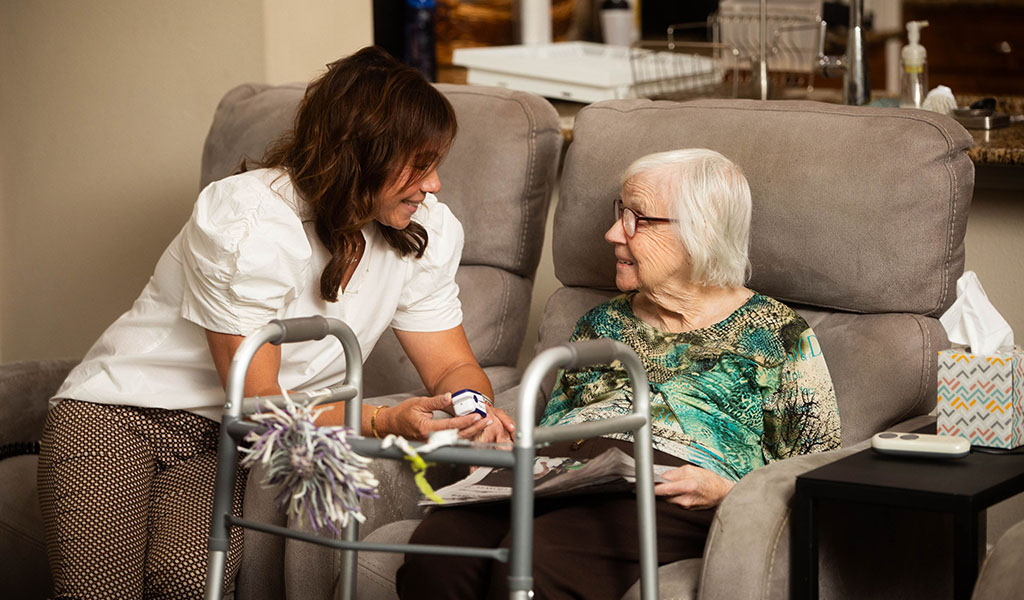Consistency of Care: Part Two
A Look at our Scheduling Process
Part 2 in a 2-part series
Caregiving is one of the hardest, most emotionally and physically draining jobs on the market. Not surprisingly, turnover among people working as in-home private duty caregivers is very high. According to the 2023 Home Care Pulse (HCP) Benchmarking Report, the median turnover rate for caregiving employees jumped from 65% in 2021 to 77% in 2022.
At Cambridge Caregivers, our turnover rate is less than half that number. Less turnover means that, when there’s a good match between a client and caregiver, we’re in a better position to send the same caregiver on a more consistent basis.
What makes us different?
Our key factor: scheduling. We schedule our employees thoughtfully, with respect for their needs, while providing as much consistency of care as possible for our clients.
Our team of schedulers works very hard to send the same caregivers, week after week, when clients request them. At same time, schedulers must balance the availability of caregivers. A key priority is making sure that caregivers who wish to work full-time are scheduled 40 hours or more each week.
“Our schedulers are really the key to our ability to provide consistency of care,” said Tammy Hooker, Chief Listener for Cambridge Caregivers. “They’re listening to clients and considering the needs of our caregivers. It’s a complicated balancing act – like a game of 3D chess. And they’re great at it.”
“For example, say caregiver Martha has been working for a client for a long time, and developed a good relationship with that client,” said Hooker. “If Martha will be on vacation next week, the scheduler will send Sally, the replacement caregiver, on a shift with Martha. That way, Martha can train Sally, and Sally will be ready to step in the following week, knowing the household routine and the client’s specific needs.”
Cambridge Caregivers covers the cost of Sally’s extra training shift. “It affects our profit margin, but we absorb that cost because we know that consistency of care is important to many of our clients,” said Hooker.
We know that clients don’t like surprises. We never send a new caregiver to a client’s home without alerting the client in advance.
One factor that families need to consider: if round-the-clock care is required, and the family wishes to ensure consistency, with the same caregiver (or caregivers) working more than 40 hours every week, by law, the caregivers must be paid overtime (time and a half.)
Another way Cambridge Caregivers ensures consistency of care: we hire good people. Applicants are background checked and carefully screened. We look for qualified caregivers who are likely to stay with the company and quickly adapt to our culture. We take our time in the hiring process to ensure there’s a good match for our company’s culture and our clients’ high expectations.
Training is another way Cambridge Caregivers helps ensure consistency of care. Training means we can send a caregiver to your home with the needed skills – for example, how who to lift your loved one safely from bed into a wheelchair.
Training also promotes retention, because it helps caregivers feel confident and competent in what they do. Training also allows caregivers to sharpen their current skills and to learn new ones. We have 42 training programs available each year for caregivers to brush up and improve their skills. We pay caregivers for their time when they attend in-person training.
Finally, we listen. We also assist caregivers who are going through a rough time, whether it’s recovering from an injury or paying for a costly car repair. We make it clear that, as a company, we have their back.
When caregivers feel their employer recognizes and rewards for their hard work, they tend to remain loyal. At Cambridge Caregivers, we take care of our employees so that they can take good care of our clients. That’s our strategy.
“Since the beginning, we have strived to become the premium provider of in-home care,” said Adam Lampert, CEO of Cambridge Caregivers. “We take care of our employees, because we want our clients to trust us to send caregivers who are trained, professional and ready to help in whatever way they can.”



